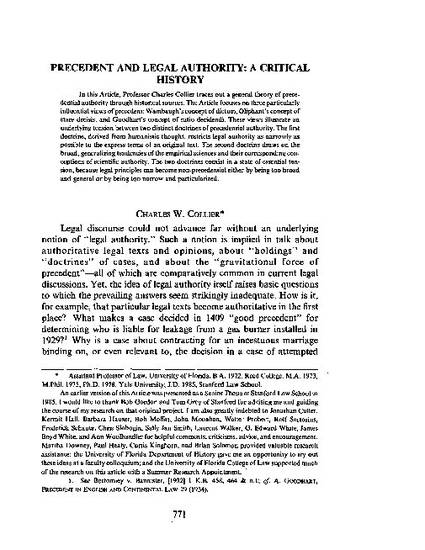
In this Article, Professor Charles Collier traces out a general theory of precedential authority through historical sources. The Article focuses on three particularly influential views of precedent: Wambaugh's concept of dictum, Oliphant's concept of stare decisis, and Goodhart's concept of ratio decidendi. These views illustrate an underlying tension between two distinct doctrines of precedential authority. The first doctrine, derived from humanistic thought, restricts-legal authority as narrowly as possible to the express terms of an original text. The second doctrine draws on the broad, generalizing tendencies of the empirical sciences and their corresponding conceptions of scientific authority. The two doctrines coexist in a state of essential tension, because legal principles can become non-precedential either by being too broad and general or by being too narrow and particularized.
